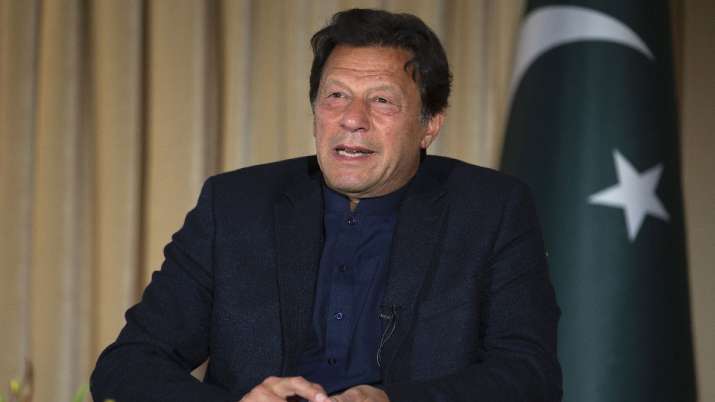
Pakistani Prime Minister Imran Khan.
Highlight
- Pak PM Imran Khan’s ruling party has openly threatened to vote against him
- About 100 MPs of PML-N, PPP moved the no-confidence motion on March 8
- Session of National Assembly likely to be called on March 21, voting likely on March 28
Nearly two dozen disgruntled lawmakers from Pakistan’s Prime Minister Imran Khan’s ruling party have openly voted against him on a no-confidence motion moved by the opposition in parliament, in a fresh blow to the prime minister, who is struggling to cling to power. has threatened.
Around 100 MPs from Pakistan Muslim League-Nawaz (PML-N) and Pakistan People’s Party (PPP) moved a no-confidence motion before the National Assembly Secretariat on March 8, alleging that Pakistan Tehreek-e-Insaf (PTI) The government under Khan’s leadership was responsible for the economic crisis and rising inflation in the country.
The session of the National Assembly for the move is expected to be called on March 21 and voting is likely to be held on March 28.
After a no-confidence motion was moved by the united opposition, some of the government’s allies began to grumble, but the real blow for Khan came on Thursday when it emerged that around 24 MLAs from his own party had to part ways to join. Were prepared. pressure to topple his government.
One of the MPs, Raja Riaz, told Geo News that Khan had failed to control inflation, while another MLA, Noor Alam Khan, told Sama News that many of his complaints were not addressed by the government.
“We are part of over two dozen members who are not happy with the policies of the government,” Riyaz said. “I raised the issue of gas shortage in my constituency several times but nothing was done,” Khan said.
The disgruntled MLAs are staying in Islamabad’s Sindh House which is the property of the Sindh government and is run by the Pakistan People’s Party (PPP).
Saeed Ghani, a provincial minister and spokesman for the Sindh government, said lawmakers feared they would be abducted by the government. Dr Ramesh Kumar Vankwani is also one of the PTI MPs residing in Sindh House.
“I was threatened and the Chief Minister of Sindh was requested to give me a room here (Sindh House),” Dawn news quoted him as saying. The government accused the Sindh government of kidnapping PTI MPs to influence them by paying huge bribes.
But Riyaz told Geo News that the MLAs were living on their own property and were ready to move out if the prime minister assured them that they would be allowed to vote “according to our conscience”.
Prime Minister Khan consulted his party leaders and ministers on Thursday and Interior Minister Sheikh Rashid urged the imposition of governor’s rule in Sindh and the removal of his government as it was involved in buying out members of the National Assembly.
“I had asked the Prime Minister to impose Governor’s rule in Sindh,” Rashid told the media after the meeting.
Khan has also been consulting with his legal team about disqualifying dissidents under floor-crossing laws, but the law can be invoked when a legislator is a member of his own party, ignoring explicit instructions from the party leader. votes against.
With Khan’s grip on power weakening, he has built up his base by calling a massive rally on March 27 to assemble one lakh workers in the heart of the capital.
Opposition parties responded to the move by asking their workers to march towards Islamabad on March 25 to capture D-Chowk in front of Parliament, where Khan plans to rally.
As the political drama unfolds, the mighty military is clearly watching the scenes from the sidelines, with many experts pondering its final move.
A Pakistani military spokesman told the media last week that the army would remain neutral, in response to which Khan addressed a rally in Khyber-Pakhtunkhwa a few days later, saying that humans take sides and “only animals are neutral”.
The army did not respond to Khan, but many interpreted it as a situation that Khan has found himself in after three and a half years of rule. Khan, 69, is heading a coalition government and may be ousted if some allies decide to switch parties.
In the 342-member National Assembly, the opposition needs 272 votes to oust the cricketer-turned-politician.
PTI has 155 members in the House and needs at least 172 MPs to remain in government. The party has the support of 23 members from at least six political parties.
Khan’s PTI party came to power in 2018 and the next general election is to be held in 2023.
read also , Pakistan’s ‘missile test’ fails, crashes in Sindh
read also , India targets OIC for inviting Hurriyat Conference to meet in Pakistan